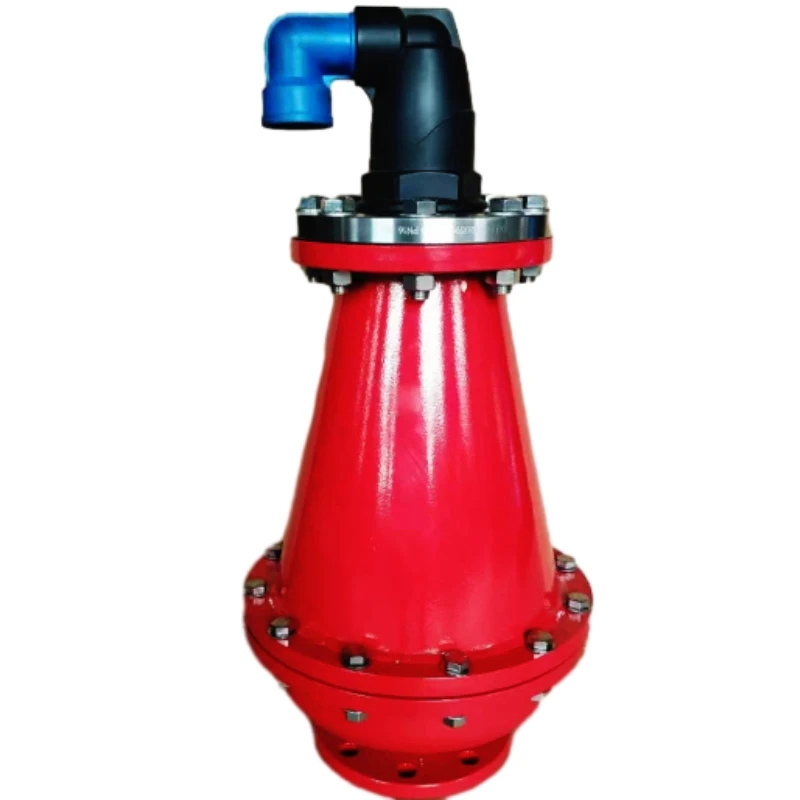High Pressure PN40 Gate Valve Specifications and Applications for Industrial Use
Understanding Gate Valves PN40 Functionality and Applications
Gate valves are crucial components in various industrial applications, used primarily to control the flow of liquids and gases in pipelines. Among the many classifications of gate valves, the PN40 rating stands out, indicating a specific pressure rating that ensures safe and efficient operation within high-pressure environments.
What is a Gate Valve?
A gate valve is designed to provide either on/off control of fluid flow. Unlike other valve types that can throttle flow, gate valves are engineered to offer minimal resistance when fully opened, making them suitable for applications where full flow is needed. The design features a wedge-shaped gate that operates vertically, allowing for smooth movements and effective sealing. When fully closed, the gate blocks the passage, preventing any fluid from passing through the valve.
Understanding PN40
The term PN stands for pressure nominal, which refers to the maximum pressure that the valve can withstand at a given temperature. A PN40 gate valve can handle pressures up to 40 bar (approximately 580 psi). This rating makes PN40 valves ideal for high-pressure systems, such as those found in water supply, oil and gas, chemical processing, and steam applications.
It is essential to note the importance of selecting the correct pressure rating for application requirements. Using a valve with an inadequate pressure rating can lead to catastrophic failures, resulting in leaks, structural damage, or even accidents.
Construction Materials
Gate valves are typically constructed from various materials, including cast iron, stainless steel, and bronze, depending on the application and the fluid being handled. For PN40 gate valves, the material chosen often reflects the need for strength and corrosion resistance. Stainless steel is a popular choice due to its durability and resistance to chemical degradation, making it suitable for harsh environments.
Applications of PN40 Gate Valves
gate valve pn40

The versatility of PN40 gate valves allows them to be used across various industries
1. Water Distribution In municipal water systems, PN40 gate valves are installed to control the flow of water, ensuring reliable distribution under high pressure.
2. Oil and Gas The oil and gas industry relies heavily on robust systems. PN40 gate valves are used in pipelines to manage crude oil and natural gas transport effectively.
3. Chemical Processing In chemical plants, the need for specialized materials to handle corrosive substances is paramount. PN40 gate valves constructed from appropriate alloys serve this purpose, providing both reliability and safety.
4. Power Generation In power plants, especially those utilizing steam, PN40 gate valves are crucial in managing high-pressure steam and ensuring efficient turbine operation.
Advantages of PN40 Gate Valves
The advantages of using PN40 gate valves are significant. Their design allows for a minimal pressure drop across the valve when fully open, aiding in effective flow management. They also offer a reliable sealing ability, which helps prevent leaks, thus ensuring environmental and operational safety.
Additionally, their durability and strength under high-pressure conditions translate to reduced maintenance needs and longer service life, ultimately resulting in cost-effective solutions for industries.
Conclusion
In summary, PN40 gate valves play a vital role in managing fluid flow across various high-pressure applications. Their ability to withstand significant pressures while providing reliable performance makes them indispensable in many sectors. As industries continue to evolve, the demand for robust and efficient fluid control mechanisms like the PN40 gate valve will remain paramount, ensuring safety and efficiency in operations worldwide.
-
Square Sewer Cover Enhances Urban SafetyNewsAug.01,2025
-
Pipe Fitting Requires Precise AlignmentNewsAug.01,2025
-
Manhole Step Is DurableNewsAug.01,2025
-
Manhole Cover Is Found WorldwideNewsAug.01,2025
-
Hole Cover Frame On RoadsNewsAug.01,2025
-
Gully Grate Improves Road SafetyNewsAug.01,2025
-
Man Hole Cover Round Load CapacityNewsJul.31,2025
